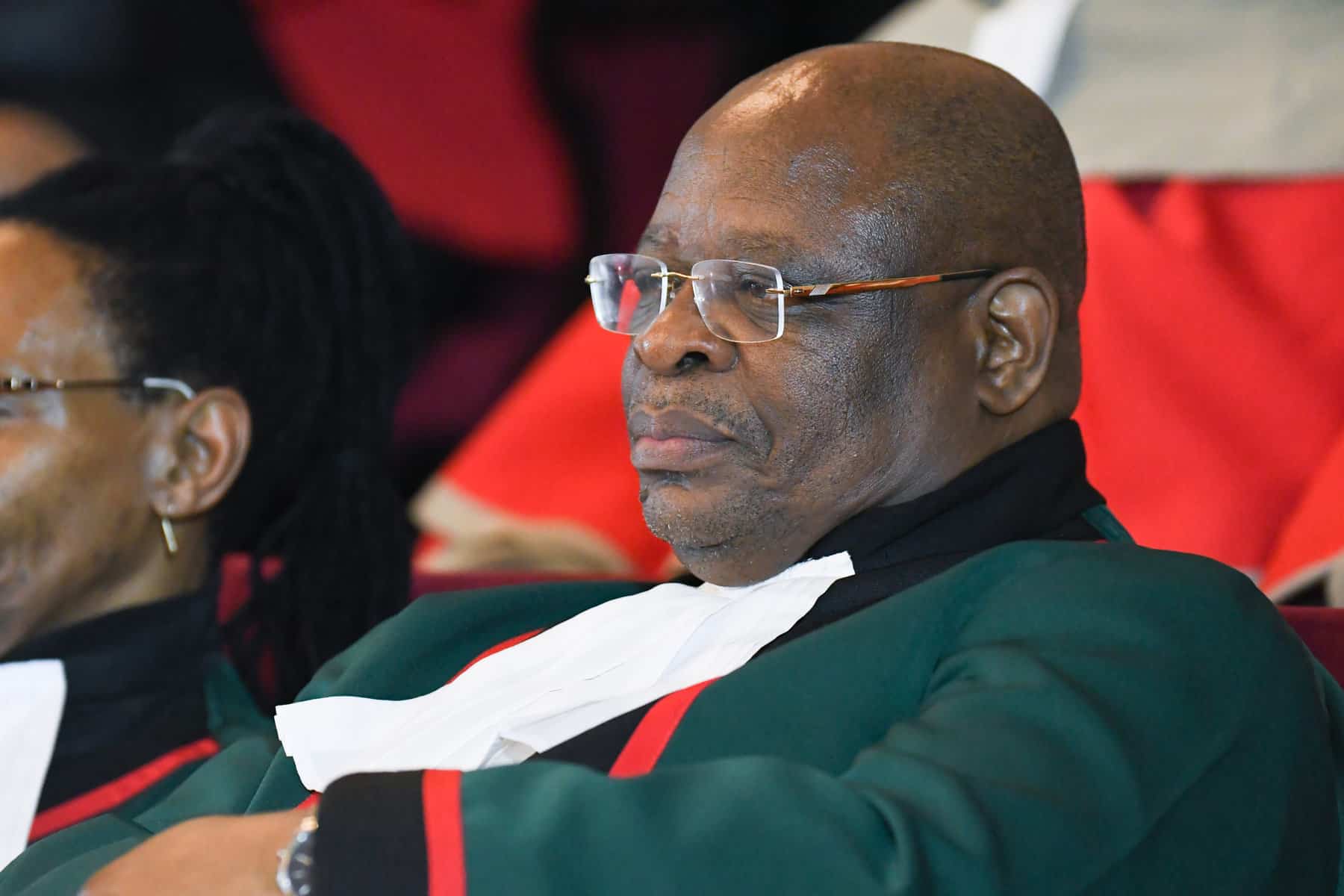‘No evidence of judges being captured’ says Zondo as Chief Justice reflects judiciary’s ‘greatest test’
The Chief Justice says accusations of capture within the judiciary are false.

Chief Justice Raymond Zondo at the State Of The Nation Address (Sona) at Parliament on 9 February 2023. Picture: Gallo Images/Jeffrey Abrahams
Chief Justice Raymond Zondo says he is yet to see any evidence to back claims that South Africa’s judiciary has been captured.
Zondo delivered his opening remarks during the first day of the judges’ conference at Sun City in North West on Tuesday.
The conference will take place over three days.
No evidence
During his speech, Zondo sought to address the allegations of judicial capture amid questions around the integrity of judges.
“We have already been accused of being captured, but it is an accusation that we reject with the contempt it deserves. For four years I called for everybody who had evidence that the judiciary in South Africa is captured and nobody came with any evidence,” he said.
The Chief Justice said the judicial capture claims were being used to drive an agenda.
ALSO READ: Zondo calls for facts on Malema’s criticism of East London magistrate
“The accusation is made by those who wish to ensure that the judiciary is not trusted by the public… that it is looked at with suspicion because it suits their purposes. No evidence has been put forward to support any such accusation,” Zondo continued.
He highlighted the challenges that judges and magistrates face in their work, including load shedding and lack of court rooms.
“We must fight for the full institutional independence of the judiciary where we can fight for the funds or the budget that we need to make sure the court operations are able to run smoothly,” Zondo added.
Threats against judges
In a press conference, Zondo further spoke of the protection of judges, having come under criticism from politicians in recent times.
Answering questions from the media, Zondo and Judge President of the Gauteng High Court, Dunstan Mlambo said judges have received personal threats in some instances because they presided over high profile court cases.
READ MORE: Zondo: ‘We must not be surprised when people refuse to testify against corruption’
Mlambo mentioned the incident of Judge Keoagile Matojane, who received threats on his personal phone.
According to the Gauteng Judge President, Matojane had been “seriously hysterical” and was so concerned for his safety that he wanted to move to another house.
“It took a lot from me to pacify him and to request that he not make a move or not to leave his residence,” Mlambo said.
‘They conspired to kill me’
Meanwhile, Zondo said he was also aware of a court case in KwaZulu-Natal (KZN), where the 65 accused were set to stand trial next year for allegedly conspiring to kill him during the July 2021 unrest.
The 8 to 19 July unrest saw more than 330 people losing their lives, and cost R25 billion in damages.
“That related to another matter involving Mr [Jacob] Zuma and not about defying the court order. Of course, apart from that, threats were made against other judges. There has been intimidation, even during the July unrest.
“Petrol bombs were shown to say certain houses would be burnt. I’ve become aware that there are people facing charges in KwaZulu-Natal relating to unrest.
“One of the charges is that they conspired to kill me. Threats do get made. It’s quite important that judges be protected. One of the protections is the public that appreciates the role of judges and stands up for them,” the Chief Justice said.
RELATED: Zondo’s comments on Zuma’s ongoing legal battles ‘unfortunate’ and ‘ill-advised’
Earlier in his opening address, Zondo said Zuma’s sentencing to 10 months in prison for defying the Constitutional Court (ConCourt) was the judiciary’s “greatest test”.
“Threats were made in the media by people who did not want the Constitutional Court to make the decision that they believed was correct when a former president defied the Constitutional Court.
“That, for me, will remain one of the most important moments in the history of our judiciary. When our highest court was defied and threats were made against the justices in order to try and pressurise them to make a decision that they might not have wanted to make, but they stood their ground. And there are high courts that have done the same in various matters.”
Watch the briefing below:
For more news your way
Download our app and read this and other great stories on the move. Available for Android and iOS.









